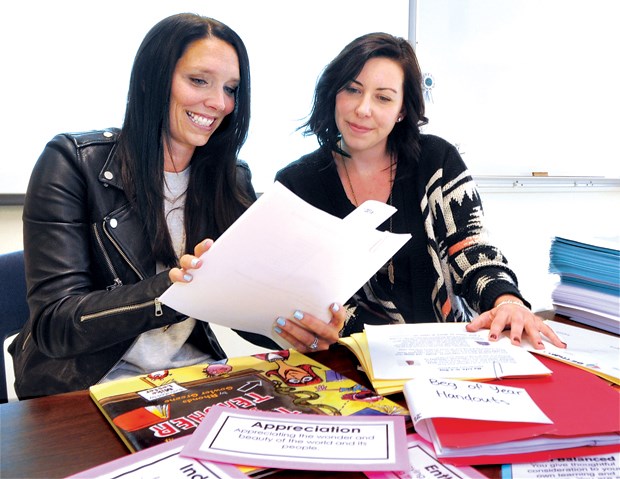Kids on the North Shore head back to school Tuesday with that familiar mixture of first-day excitement and jitters that their parents probably remember.
They still have the pencils, books and backpacks, but some students will also use tablets in their classrooms while teachers are more likely to use touch screens than blackboards.
This year, it’s not just the tools of education that are changing. September marks the start of a three-year program to introduce a new curriculum in schools.
At its core is a renewed emphasis on learning skills students will need to carry them through both their school years and beyond that in the adult world — critical thinking, how to work collaboratively with others and how to communicate effectively.
“If we’re preparing kids for the future, those are really important skills that kids need to have,” said Lynne Tomlinson, director of instruction for the West Vancouver School District.
For the most part, educators are enthused about the changes.
It’s unlikely parents will notice any dramatic shifts, said Kathleen Barter, an administrator who works with the curriculum for the North Vancouver School District.
“A lot of it is what is already happening in our classrooms,” she said.
Although there’s a stress on allowing students more choices, “It’s not everybody does whatever they want,” she said.
Many of the approaches being adopted in the new curriculum are similar to those found in International Baccalaureate schools, which emphasize values like global citizenship and social responsibility.
Several schools in both North and West Vancouver school districts are already IB schools.
At Capilano elementary, Grade 5 teacher Tara Pringle said it’s an approach that encourages students to be more active participants in their education. Questions are encouraged and it’s recognized that making mistakes is part of how kids learn, she said. “You try things. They don’t work. You try something else.”
Pringle and fellow elementary school teachers Jillian Gordon and Arash Kaboli are quick to point out that nobody’s getting rid of important “facts” or content in the new curriculum. But the stress is on understanding bigger ideas behind the facts, said Kaboli.
Kim Coleman, a North Vancouver parent of two elementary school students, said approaches to learning have changed since she went to public school.
“In theory I agree with less 1950s rote memorization,” she said. “You don’t need to memorize things. You need to know where to find information.”
Coleman said her biggest concern is that adequate resources may not be available for teachers to carry out the type of personalized learning described. “It’s all the same budget at the end of the day,” she said.
An emphasis on environmental science and aboriginal perspectives is also part of the new curriculum.
Teachers will spend the first professional development day later this month learning about and discussing the changes.
Meanwhile, North Vancouver RCMP spokesman Cpl. Richard De Jong is warning drivers that police will be out in force next week to watch for speeders in school and playground zones. Those going over the posted speed limit can expect to be hit with a $196 ticket.



